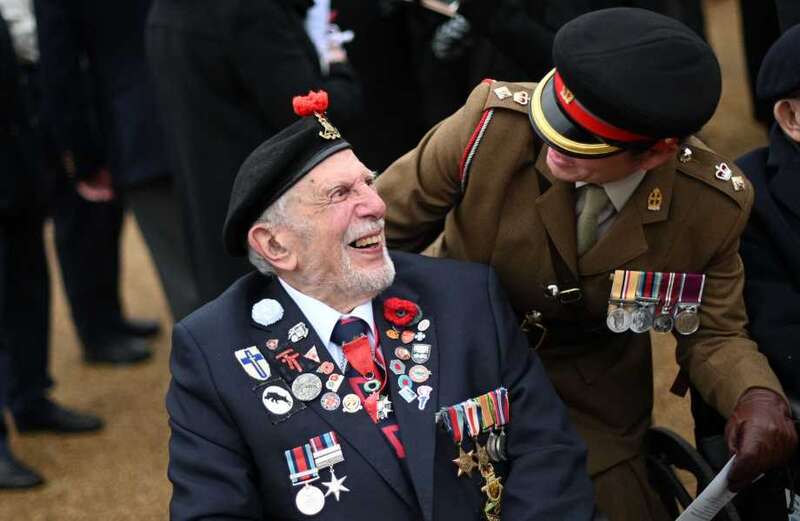ONE of Britain's last D-Day veterans who was in one of the first waves of the assault on the Normandy beaches has died aged 100.
Joe Cattini landed on the beaches of northern France as part of an invasion force that would turn the tide of the Second World War.

Sarah Burr, Joe's granddaughter, announced in a statement that her "beloved grandad" passed away yesterday evening.
She wrote: "A life so well lived. One of the last D-Day veterans left. We are so proud of him and loved him so much.
"The past nine years since D-Day 70 were some of the happiest of his life.
 I starred at the World Cup and almost beat France - now I'm homeless in London
I starred at the World Cup and almost beat France - now I'm homeless in London
"From (like most of his generation) never having really talked about his war experiences to sharing them with so many others in recent years was so important to him."
There are only around half a dozen living British veterans who fought on the beaches on June 6, 1944 in an immense assault that led to the liberation of France from Nazi occupation, according to the Spirit of Normandy Trust.
The charity estimates that there are only around 25 veterans of the entire Normandy campaign left.
During the 70th anniversary of the invasion in 2019, Joe told the BBC: "I landed here on D-Day at 10am and the beach was littered with dead, wounded, prisoners of war and also destroyed vehicles and craft.
"There were things floating in the water that you don't want to remember.
"Now it's so peaceful and tranquil that you feel more at ease."
Joe was working as a military driver and was not meant to land in France until days after the invasion.
However, he was grabbed by a sergeant major at Southampton docks after dropping off a group of officers and told he was needed to drive one of the 1st East Yorkshire Regiment's ammunition lorries.
He told The Times: "It was bloody rough.
"A lot of the boys were sick. Some of the younger ones were crying for their mums and NCOs and officers were going around and trying to sort them out."
 Tech giants have failed to stop harmful content because they put profits first
Tech giants have failed to stop harmful content because they put profits first
Joe went on to describe what he faced that day, saying: "There were bodies floating in the sea and on the beach. I had been in the civil defence reserve during the Blitz in London so it didn’t faze me, but the stench and carnage was terrible.
"We were directed off the beach by the beach masters and we had to keep strictly within white taped lines.
"One silly b***** decided he wanted to get ahead a bit and went over the white line and had only gone a couple of yards and blew up and hit a mine. That shook me because I had 180 rounds of 25lb ammunition and 80 gallons of petrol onboard."
By the end of D-Day, 24,970 men had landed successfully with just 4,414 killed.
This represented the largest seaborne invasion in history.
It gained the Allies a foothold in France, from which they were able to expand to liberate the rest of France.
The victory also meant that the German Army was forced to fight a land war in Europe on both the Western and Eastern fronts, ultimately leading to the collapse of the end of the war and the collapse of the Third Reich.



































